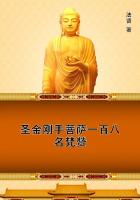Domestic Scenes ON the following morning, I received a few lines from him my self, confirming Hargrave's intimations respecting his approaching return. And he did come next week, but in a condition of body and mind even worse than before.
I did not, however, intend to pass over his derelictions this time without a remark;--I found it would not do. But the first day, he was weary with his journey, and I was glad to get him back: I would not upbraid him then;
I would wait till tomorrow. Next morning, he was weary still: I would wait a little longer. But at dinner, when, after break fasting at twelve o'clock on a bottle of soda-water and a cup of strong coffee, and lunching at two on another bottle of soda water mingled with brandy, he was finding fault with everything on the table and declaring we must change our cook--I thought the time was come.
`It is the same cook as we had before you went, Arthur,' said I. You were generally pretty well satisfied with her then.'
`You must have been letting her get into slovenly habits then, while I was away. It is enough to poison one--eating such a disgusting mess!' And he pettishly pushed away his plate, and leant back despairingly in his chair.
`I think it is you that are changed, not she,' said I, but with the utmost gentleness, for I did not wish to irritate him.
`It may be so,' he replied, carelessly, as he seized a tumbler of wine and water, adding, when he had tossed it off--`for I have an infernal fire in my veins, that all the waters of the ocean cannot quench!'
`What kindled it?' I was about to ask, but at that moment the butler entered and began to take away the things.
`Be quick, Benson--do have done with that infernal clatter!' cried his master--`And don't bring the cheese!--unless you want to make me sick outright.'
Benson in some surprise, removed the cheese, and did his best to effect a quiet and speedy clearance of the rest, but, unfortunately, there was a rumple in the carpet, caused by the hasty pushing back of his master's chair, at which he tripped and stumbled, causing a rather alarming concussion with the trayful of crockery in his hands, but no positive damage, save the fall and breaking of a sauce-tureen;--but, to my unspeakable shame and dismay, Arthur turned furiously around upon him, and swore at him with savage coarseness. The poor man turned pale, and visibly trembled as he stooped to pick up the fragments.
`He couldn't help it, Arthur,' said I; `the carpet caught his foot--and there's no great harm done. Never mind the pieces now, Benson, you can clear them away afterwards.'
Glad to be released, Benson expeditiously set out the dessert and withdrew.
`What could you mean, Helen, by `taking the servant's part against me,' said Arthur, as soon as the door was closed, `when you knew I was distracted?'
`I did not know you were distracted, Arthur, and the poor man was quite frightened and hurt at your sudden explosion.'
`Poor man indeed! and do you think I could stop to consider the feelings of an insensate brute like that, when my own nerves were racked and torn to pieces by his confounded blunders?'
`I never heard you complain of your nerves before.'
`And why shouldn't I have nerves as well as you?'
`Oh, I don't dispute your claim to their possession, but I never complain of mine.'
`No--how should you, when you never do anything to try them?'
`Then why do you try yours, Arthur?'
`Do you think I have nothing to do but to stay at home and take care of myself like a woman?'
`Is it impossible then, to take care of yourself like a man when you go abroad? You told me that you could--and would too; and you promised--`
`Come, come, Helen, don't begin with that nonsense now; I can't bear it.'
`Can't bear what?--to be reminded of the promises you have broken?'
`Helen, you are cruel. If you knew how my heart throbbed, and how every nerve thrilled through me while you spoke, you would spare me.
You can pity a dolt of a servant for breaking a dish; but you have no compassion for me, when my head is split in two and all on fire with this consuming fever.'
He leant his head on his hand, and sighed. I went to him and put my hand on his forehead. It was burning indeed.
`Then come with me into the drawing-room, Arthur; and don't take any more wine; you have taken several glasses since dinner, and eaten next to nothing all the day. How can that make you better?'
With some coaxing and persuasion, I got him to leave the table.
When the baby was brought I tried to amuse him with that; but poor little Arthur was cutting his teeth, and his father could not bear his complaints; sentence of immediate banishment was passed upon him on the first indication of fretfulness; and, because, in the course of the evening, I went to share his exile for a little while, I was reproached, on my return, for preferring my child to my husband. I found the latter reclining on the sofa just as I had left him.
`Well!' exclaimed the injured man, in a tone of pseudo resignation.
`I thought I wouldn't send for you; I thought I'd just see--how long it would please you to leave me alone.'
`I have not been very long, have I, Arthur? I have not been an hour, I'm sure.'
`Oh, of course, an hour is nothing to you, so pleasantly employed; but to me --`
`It has not been pleasantly employed,' interrupted I. `I have been nursing our poor little baby, who is very far from well, and I could not leave him till I got him to sleep.'
`Oh to be sure, you're overflowing with kindness and pity for everything but me.'
`And why should I pity you? what is the matter with you?'
`Well! that passes everything! After all the wear and tear that I've had, when I come home sick and weary, longing for comfort, and expecting to find attention and kindness, at least, from my wife,--she calmly asks what is the matter with me!'
`There is nothing the matter with you,' returned I, `except what you have wilfully brought upon yourself against my earnest exhortation and entreaty.'















